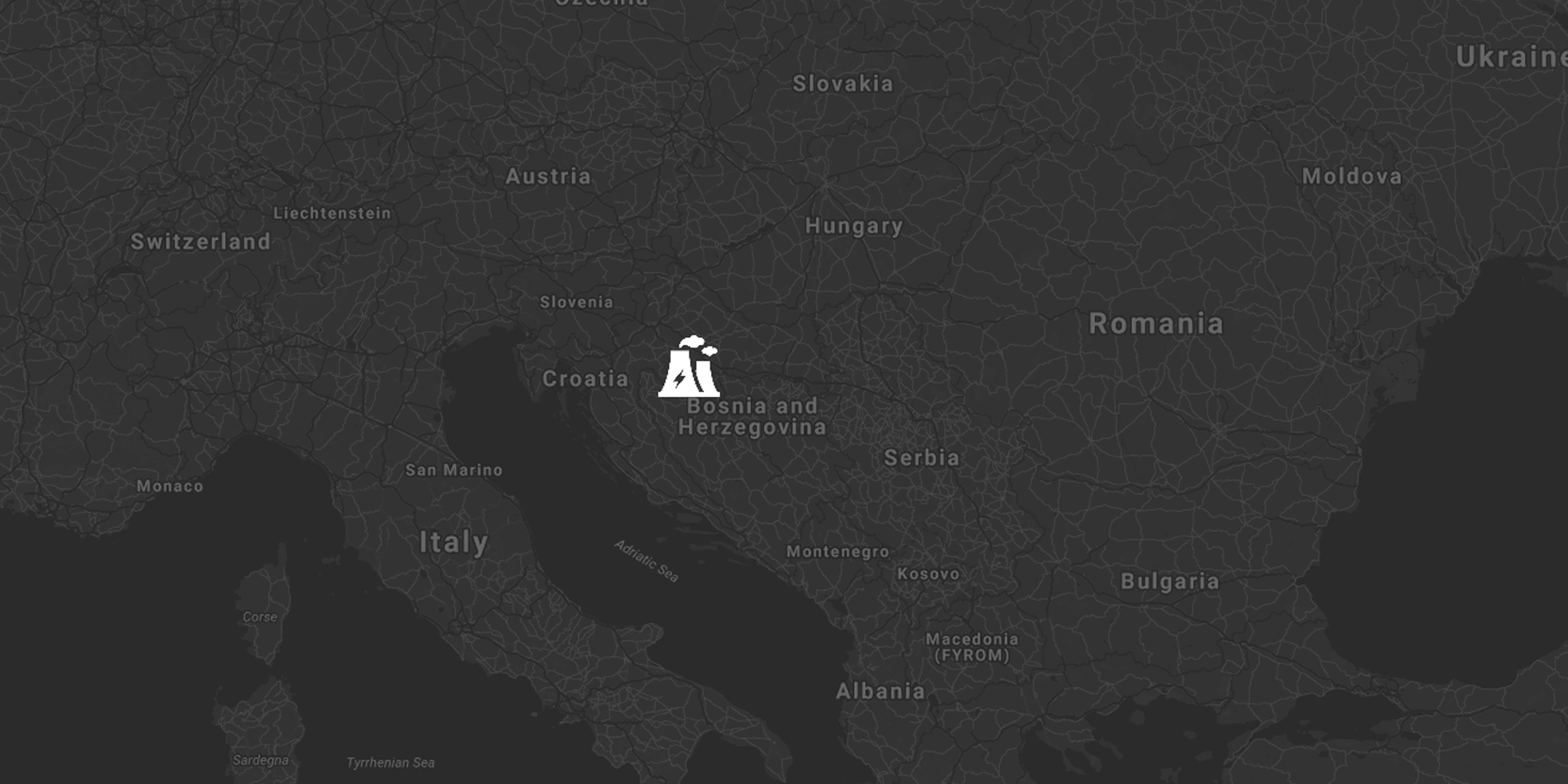Kamengrad lignite power plant, Bosnia-Herzegovina
An idea to build a power plant at the open-cast Kamengrad coal mine near Sanski Most in the Federation of Bosnia and Herzegovina has been around for years, but in November 2017 it took a step forward with the signing of a Memorandum of Understanding between Energy China International and the construction supplier Lager d.o.o. for a 2 x 215 MW plant.

Stay informed
We closely follow international public finance and bring critical updates from the ground.
Background
CANCELLED: An idea to build a power plant at the open-cast Kamengrad coal mine near Sanski Most in the Federation of Bosnia and Herzegovina has been around for years, but in November 2017 it took a step forward with the signing of a Memorandum of Understanding between Energy China International and the construction supplier Lager d.o.o. for a 2 x 215 MW plant.
Few details are available about the plant, and it has no environmental permit and no financing. As with other plants across the region, unrealistic employment promises have already been made. In December 2017 head of the Sanski Most District Faris Hasanbegović stated that it would provide 1000 workplaces.
This does not appear to have convinced local people, however. As it would be a new power plant, it has attracted much more opposition locally than most other planned plants in the country. Sanski Most is located on the beautiful river Sana and prides itself on having no fewer than nine rivers in the district altogether. As a scenic and green area many of its residents feel that the power plant will spoil its potential for agriculture and tourism rather than bringing prosperity.
At a public debate on the adoption of the Una-Sana Canton spatial plan in August 2018, Sanski Most residents and the local council demanded the removal of the power plant project from the plan. This was carried out, although the plan was never adopted. In November 2019, another presentation of the Kamengrad coal power plant project appeared on the agenda of the Sanski Most Municipal Council. However, the meeting was cancelled after public pressure.
Another issue is that the concession for the mine was awarded to Lager d.o.o. after a bankruptcy procedure was carried out for the previous operator, RMU Kamengrad, but in 2017 the bankruptcy decision was declared illegal by the Constitutional Court of Bosnia and Herzegovina and returned to the Una-Sana Canton court.
As of early 2026 the plant is very unlikely to go ahead and does not appear in Bosnia and Herzegovina’s ten-year network development plans, so we consider it cancelled.
Latest news
Fear and fossil fuels in Romania
Blog entry | 11 February, 2026A draft law supported by thirty members of the Parliament, aims to roll back Romania’s coal phase out and, at the same time, delivers a masterclass in manipulation.
Read moreJoint NGO statement: New EU budget must ensure dedicated funds for environmental protection and just transition in the Western Balkans
Press release | 28 May, 202568 civil society organisations have today issued a joint statement calling on the EU to ensure dedicated funds for environmental protection and just transition of coal-dependent regions in the Western Balkans in the post-2027 EU budget.
Read moreConcerns raised over new coal mining project in light of North Macedonia’s decarbonisation goals
Blog entry | 27 May, 2025CEE Bankwatch Network and Eko-svest have recently raised serious concerns regarding a proposed coal mining project in North Macedonia. The plan to open a new lignite mine in the Pelagonija region comes as a surprise, as the region is already affected by three other operating mines and the project contradicts the country’s coal phase-out commitments.
Read moreRelated publications
New EBRD Environmental and Social policy needs climate muscle and tightened safeguards for protected areas
Bankwatch Mail | 10 May, 2013 |If there is one sector in which the EBRD has been causing particular controversy in recent years, it is the energy sector. From lignite in Slovenia to hydropower in Georgia and nuclear in Ukraine, the bank has financed a series of projects that have incurred opposition from various quarters. Now that the EBRD is revising its Environmental and Social Policy it’s time to take a look at what needs to be learned from these projects.
Croatian coal power plant predicted to be a killer – new study
Bankwatch Mail | 10 May, 2013 |A new report by Greenpeace Croatia, using European Environment Agency methodology, shows that the planned new 500 MW unit at the Plomin coal power plant in Croatia will cause approximately 17 early deaths annually, along with around 3970 lost working days due to illness and EUR 124.8 million in external costs.
NEVER AGAIN – Sostanj lignite power plant financing slammed
Bankwatch Mail | 10 May, 2013 |Following confirmation at the beginning of March that the European Investment Bank and the European Bank for Reconstruction and Development are paying out half a billion euros in loans for a new unit at the Sostanj lignite power plant (TES 6) in Slovenia, 98 organisations sent an open letter to both banks calling on them to never commit to such misguided loans again.
